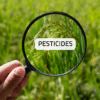 Food Manifest
Food Manifest
The house of resource for food safety.
FSSAI
- Home
- FSSAI

Saccharin: The Bitter Side of Sweeteners0
- A to Z, Food Hygiene, Food Safety, General, Health & Wellness
- June 14, 2025
Have you ever grabbed a diet soda or a sugar-free sweetener and felt proud for skipping sugar? Many people do! For decades, companies have added artificial sweeteners to drinks and foods to offer sweetness without calories. One of the oldest and best-known of these is saccharin. Recently, saccharin has been in the news again after
READ MORE
FSSAI Sets First-Ever Cheese Powder Standard, Tightens Water Safety Norms0
- A to Z, Food Hygiene, Food Laws, Food Safety, Health & Wellness, News
- June 13, 2025
Report The Food Safety and Standards Authority of India (FSSAI) has released a draft notification outlining major proposed amendments to the Food Safety and Standards (Food Products Standards and Food Additives) Regulations, 2011. These 2025 amendment proposals aim to strengthen food safety by updating standards across multiple categories, such as dairy products, drinking water, and
READ MORE
Kerala Cracks Down on Unsafe Food with Operation Monsoon0
- A to Z, Food Hygiene, Food Safety, Health & Wellness, News
- June 12, 2025
Report The Kerala Food Safety Department inspected 4,451 food businesses across the state as part of Operation Monsoon, a seasonal drive launched to tackle unhygienic food handling during the rainy season. Since the operation began on May 2, officials have closed 80 establishments for serious violations. They issued 592 rectification notices and 433 compounding notices
READ MORE

Paneer Crackdown: 450 Kg Seized in Chandigarh Over Safety Violations0
- A to Z, Blog, Food Hygiene, Food Safety, Health & Wellness, News, Resources
- June 12, 2025
Report In a major crackdown on unauthorised dairy sales, food safety officials from the Chandigarh Health Department raided a shop and a nearby vehicle in Bapudham Colony, Sector 26, early Wednesday morning. They seized approximately 450 kilograms of paneer, along with samples of desi ghee and curd. The raid began around 7 a.m. at House
READ MORE
Behind the Speed: Hygiene Gaps in Quick Commerce Dark Stores0
- A to Z, Event, Food Hygiene, Food Safety, Health & Wellness, News
- June 11, 2025
India’s booming quick commerce sector, known for delivering groceries and essentials within minutes, is now under intense scrutiny over serious hygiene lapses and food safety violations. At the heart of the issue are dark stores—warehouse-like storage hubs that stock and dispatch products for last-mile delivery. Once lauded for their role in fast retail, these facilities
READ MORE
Coimbatore Authorities Mandate Higher Mineral Content in Bottled Water0
- A to Z, Food Hygiene, Food Safety, Health & Wellness, News
- June 7, 2025
Authorities Push for Healthier Bottled Water The Food Safety Department in Coimbatore has directed all packaged bottled water manufacturers to increase the mineral content in their products. Dr. T. Anuradha, the Designated Officer of the Food Safety and Standards Authority of India (FSSAI), led a sensitisation meeting on Friday, where she emphasised the need to
READ MORE
Latest Posts
-

Milk Safety Drive: 12,780 Samples Fail FSSAI Tests in FY 24-25
- A to Z, Food Safety, General, News
- February 18, 2026
-

Malappuram Launches Modern Food Street at Kottakkunnu
- A to Z, Food Hygiene, Food Safety, Health & Wellness, News
- February 16, 2026
-

-

-










